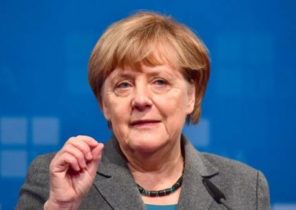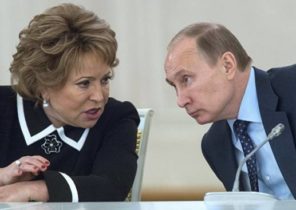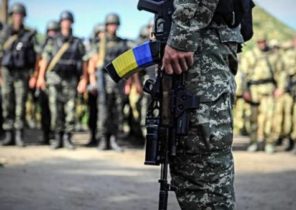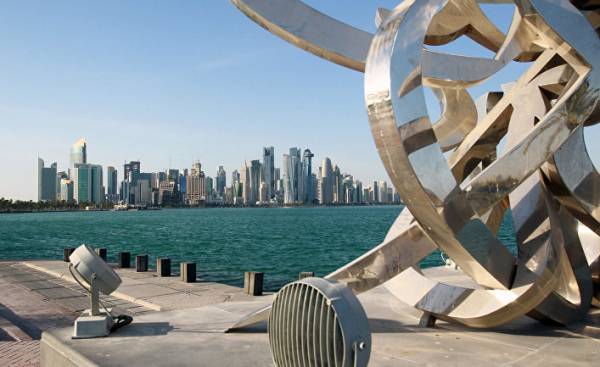
In 1914 Sarajevo was, and in 2017 will be in Doha? We have witnessed a historical moment akin to the assassination of the heir to the Austro-Hungarian throne, which led to the First world war. But this time the clash can begin between the forces of Saudi Arabia and the United Arab Emirates on the one hand, and the army of Iran on the other. Washington must act very quickly in order to stop the slide towards this war, and not to wait, when will begin the carnage.
Nominally, the goal for Saudi Arabia and the UAE is Qatar, who no longer agrees with the General opinion of the Persian Gulf countries regarding Iran. Riyadh and many other Arab countries on Monday ended the relationship with this enriched gas by the Emirate, and Saudi Arabia banned the Qatari aircraft flying through its territory, closed the land border and the transit of Qatari vessels through its waters. By any standards this is actually a pretext for war. For comparison, began half a century ago, the six day war was caused by the fact that Egypt closed the Strait At the Tyrant, thus depriving Israel of the exit into the Red sea.
Iran said in response that will allow Qatar to use three of its ports to import through them, the country needs food. Riyadh and Abu Dhabi will see in this gesture a confirmation of the treacherous ties Doha and Tehran.
There are at least two narrative lines explaining how did we get here. If you believe the government of Qatar on may 24, hackers breaking its official news Agency Qatar News Agency and gave false news that the Emir Tamim bin Hamad al Thani stated: “the hostility of the Arabs against Iran for no reason”. In this supposedly fake message confirmed that Qatar supports the “Muslim brotherhood” and their Palestinian offshoot Hamas, and also retains good relations with Israel.
Meanwhile, the media in Saudi Arabia and the UAE, which impact the power, took a different line, saying that these reports are true. They responded instantly and with great indignation. The media endlessly repeated comments by the Emir, and Internet access, the Qatari media has been blocked in connection with official denials of Qatar cannot be read.
It is not excluded that the first hacking was organized by Tehran, which has enormous irritation caused anti-Iranian stance taken by the participants of the summit in Riyadh, held on may 20-21. Then U.S. President Donald trump met with Saudi Arabia’s king Salman bin Abdul-Aziz al Saud, and with representatives of dozens of Muslim States. June 3 for a few hours was hacked’s Twitter account the foreign Minister of Bahrain Sheikh Khalid bin Ahmed al-Khalifa (Khalid bin Ahmed al-Khalifa), and in this incident the government blamed activists from the Shiite opposition, refusing to point the finger at Iran. The motive for Iran could be its desire to demonstrate the disunity of the Gulf countries, as well as irritation due to the fact that trump has supported the position of the cooperation Council of Persian Gulf States against Iran.
Qatar, for its part, considers himself the victim of a conspiracy of Riyadh and Abu Dhabi, which has long been hostile relations with Doha, despite the fact that they are all included in the cooperation Council States of the Persian Gulf. Riyadh believes that Qatar, which assigns a Central role to Wahhabism (in fact, like the Saudi Kingdom), is a troublemaker in the region. Doha to allow women to drive, and foreigners to drink alcohol, in turn, accused the Saudis that they gave Wahhabism a bad reputation. And Abu Dhabi Doha despises for supporting “Muslim Brothers”, which in the UAE are banned.
In 2014 there was already an embarrassing diplomatic crisis that lasted eight months, however, the current problem has its roots in 1995 when the father of the Emir of Qatar Tamim Hamad ousted his useless and always absent father. Saudi Arabia and the UAE saw this family coup a dangerous precedent for the ruling families of the Gulf States, and began to conspire against Hamada. As noted by one working at the time in Doha, the diplomat, the neighbors persuaded several hundred tribesmen to kill Hamada, two of his brothers and the Ministers of foreign Affairs and energy, and then to return power to the old Emir. UAE has even led to a heightened state of combat readiness of its helicopter gunships and fighter aircraft to support the attempt. But the conspirators failed, as one tribal member said about the plot a few hours before it starts.
Against the background of these events, the paranoia of the Emir Tamim seems quite justified. At the weekend one of the UAE Newspapers reported that a member of the ruling Qatari family from among the opposition Sheikh Saud bin Nasser (Saud bin Nasser) intends to visit Doha and act as a mediator.
But the population of Qatar is only 200 thousand people, and explain the importance of this country is quite difficult. Living there, the foreigners treat her with slight bewilderment. In the urban landscape of Doha is dominated by the often empty, but brightly lit skyscrapers, one of which because of its shape got a comic called “pink condom”. But in Qatar the world’s highest income per capita. This Emirate is the second largest in the world after Iran’s reserves of natural gas, exporting it in large volumes in various countries from Britain to Japan. There is also a giant airbase “al Udeid air base” from which American planes made sorties during the wars in Afghanistan and Iraq, and which today is the command center of the us campaign against the “Islamic state” (banned in Russia organization — approx. TRANS.).
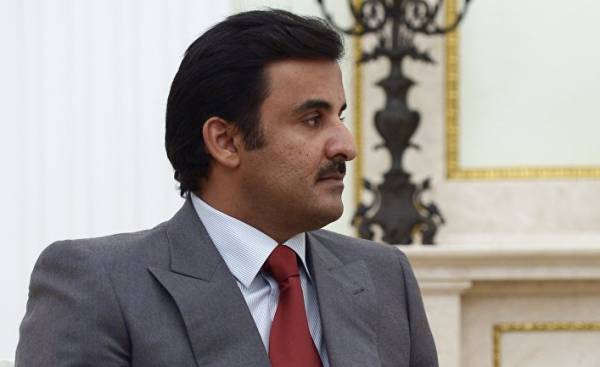 © RIA Novosti, Alexei Nikolsky | go to fotobanka of the state of Qatar, Sheikh Tamim bin Hamad al-Thani
© RIA Novosti, Alexei Nikolsky | go to fotobanka of the state of Qatar, Sheikh Tamim bin Hamad al-Thani
37-year-old Emir Tamim ruled this country in the shadow of his father, who in 2013 abdicated in his favor. A key priority for him is probably to remain a good ally of America and at the same time not to irritate Iran. Gas wealth in this country concentrated mainly on the offshore field that Doha shares with Tehran. While Qatar is pumping out more gas than Iran.
Washington can play an important role in dealing with this volatile situation. American officials may believe that Qatar is not very impartial, balancing between the US and Iran; however, a protracted conflict between Riyadh and Doha, as well as the fight that could push Qatar in the Iranian embrace, not beneficial to anyone. In this respect, in a very favorable position is the Secretary of state Rex Tillerson. ExxonMobil, which he led before joining the us government, is the largest foreign player in the Qatari energy sector, and Tillerson probably quite familiar with those who in this country makes the most important decisions.
Riyadh and the UAE as if they want to show their reliability and suitability as alternative sites for the deployment of American troops concentrated today in “al-Udade”. But the reputation they have is not as good as they are trying to show. In 2003, Saudi Arabia has expelled American forces from an air base “the Prince the Sultan”, when Riyadh tried to cope with their Islamic extremists after the September 11 attacks. Abu Dhabi is already hosting a us reconnaissance and refueling aircraft, but to create a well-equipped command center in return, “al-Udeid”, it will take a lot of time.
This confrontation has become a challenge for an inexperienced administration trump. Just a few weeks ago during a photography collective in Riyadh, crown Prince of Abu Dhabi Mohammed bin Zayed al-Nahyan (Muhammed bin Zayed Al Nahyan) pushed the Emir Tamim to stand at the right hand of the American President. Now Saudi Arabia and the UAE are trying to do the same in the international arena. Of all the possible middle East crises that trump’s advisors never mentioned.
